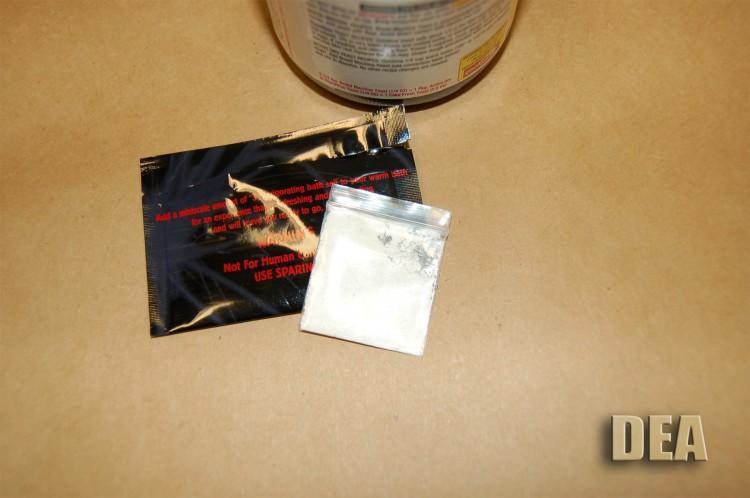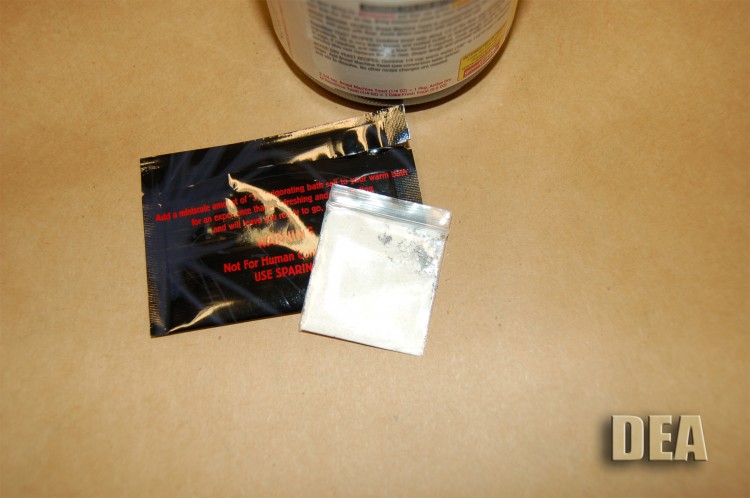A key ingredient in the emerging and highly addictive street drug “bath salts” will be banned in Canada by the fall, the federal government has announced.
The drug is named for its resemblance to the harmless bath powders found in any drug store. But in reality it is a dangerous street drug that can be snorted, injected, or eaten, and is increasingly linked to extreme violence and psychosis in users.
Some side effects of the drug include rapid heartbeat, increased body temperature, severe paranoia, agitation, psychotic delusions, and suicidal thoughts.
The active ingredients in bath salts include the stimulants mephedrone, a white powder often found in tablets or capsules; MDPV, which acts as a norepinephrine-dopamine reuptake inhibitor; and methylone, a euphoric originally designed as an anti-depressant.
MDPV is the ingredient the government plans to add the Controlled Drugs and Substances Act, putting it in the same category as heroin and cocaine, said Health Minister Leona Aglukkaq.
“This action helps give law enforcement the tools they need to keep our streets and communities safe from this new and emerging drug that ruins lives and causes havoc in communities across the country,” Aglukkaq told a news conference Tuesday.
The change means possession, trafficking, possession for the purpose of trafficking, importation, exportation, and production would be illegal unless authorized by regulation.
The move is key in controlling the drug’s spread in Canada, says Sergeant Craig MacDougall, a spokesman with Rothesay Regional Police in New Brunswick.
“I think it will assist in preventing [MDPV] from entering the country,” he said.
“Right now, if it’s is able to be bordered in without any laws prohibiting it, then it makes it easy for its access into the country. If it is labelled illegal and added as a controlled substance it just puts up further barriers and road blocks in front of these traffickers.”
MDPV is currently banned in the U.S., Europe, the U.K., and Australia.
MacDougall says he first came across bath salts in his area last fall when officers seized 400 kilograms of what they thought was ecstasy from a home in St. John. After lab analysis, they confirmed it was MDPV.
There have been few cases of bath salts confiscation in Canada, but health authorities have reported that users are starting to pop up in emergency rooms around the country.
Bath salts made international headlines in late May when a Miami man reportedly high on the drug viciously attacked a homeless man, tearing off part of his face with his teeth.
‘We’ve been through hell’
Jennifer Batson, a Wilmington, North Carolina, mother whose son is battling a two-year addiction to bath salts, said he’s tried to commit suicide multiple times since he began using it.
“We’ve been through hell,” she said. “He thought it was harmless, but once he started doing it he craved it non-stop.”
At the peak of his addiction, Batson’s son admitted to consuming as much as 9 or 10 packets a day. When he started having psychotic episodes, Batson sought medical attention, but it was difficult to find the cause.
She said that until recently, local hospitals were not sure how to identify or treat for the relatively new drug.
“They didn’t have a clue,” she said. But things have changed. According to Batson, all the hospitals in her area now have an over-abundance of bath salt addicts.
“There are actually waiting lists because of the bath salts epidemic,” she said. “I’ve seen so many kids where it is so obvious that they’re on bath salts.”
She said her son was initially given free packets by a dealer and told to share it with his friends.
But fortunately for Batson’s son, things are turning around. As one of Wilmington’s first reported cases related to bath salts, Batson said he has been beneficial to the hospital and local authorities in their struggle to deal with the problem.
“So there’s a positive in all of this.”
“He’s in a good place now, thank God,” Batson said, adding that after he finishes his 30-day program, he will be moving into a long-term facility. “Now that he’s not on bath salts his mental state is completely fine.”






